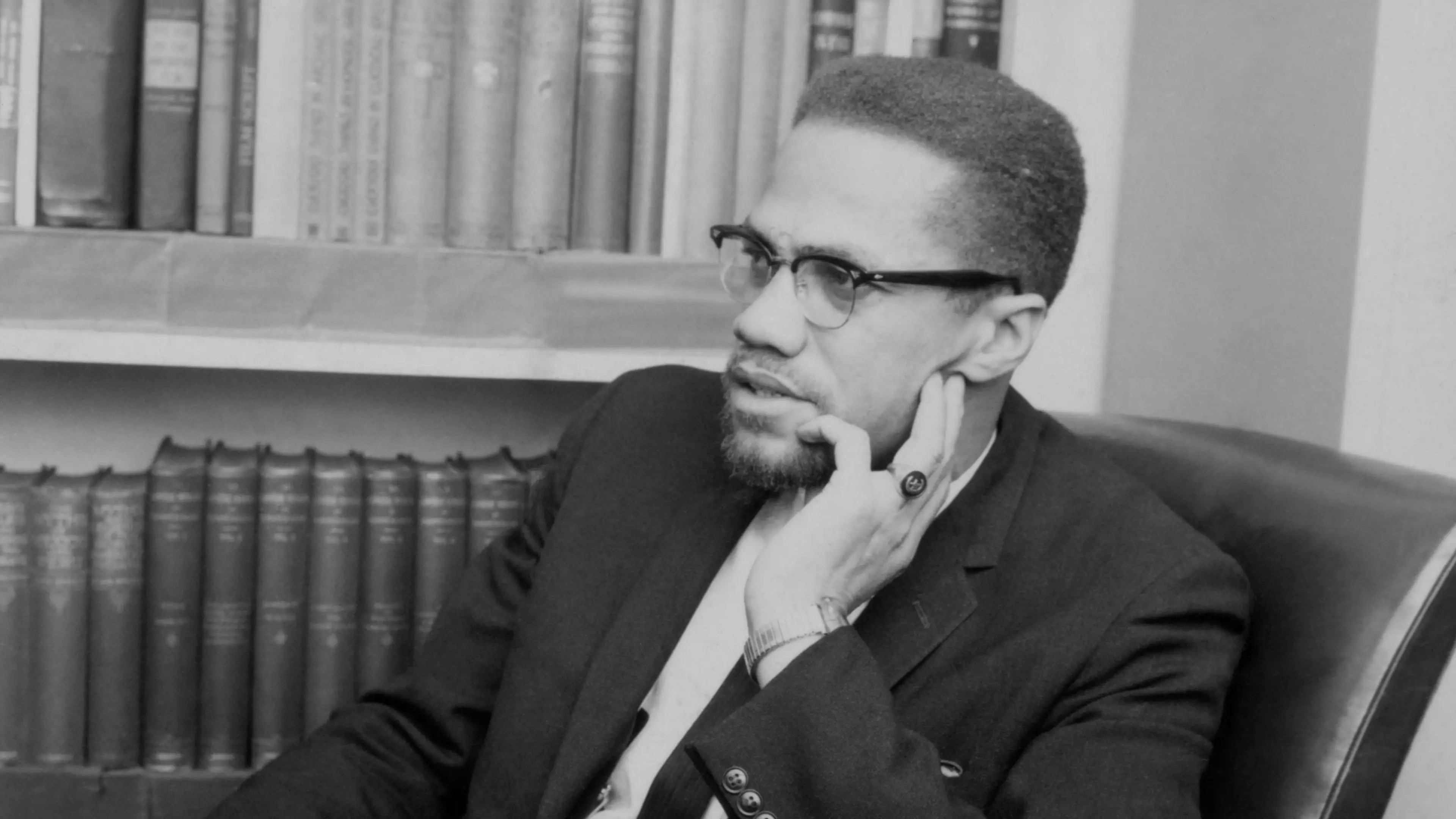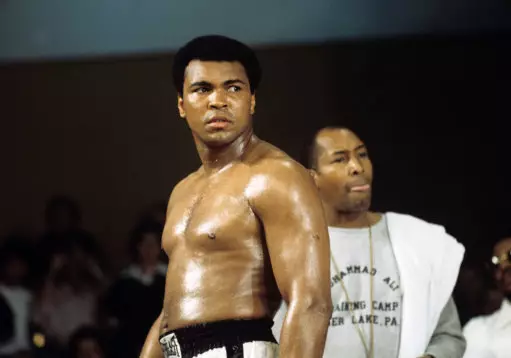
Today would have been civil rights activist Malcolm X's 92nd birthday.
Despite his death coming over half a century ago, Malcom remains as a symbol of hope for many - his life a demonstration of the transformative power we are all capable of if we are willing to dedicate ourselves and our time to the causes we believe are right.
The Autobiography of Malcolm X, in which the man outlined his philosophy of black pride, black nationalism, and pan-Africanism, has sold millions of copies and is considered one of the most influential political texts of the 20th century.
Advert
Although the book remains controversial, behind the militancy of his talk of whites as 'blue-eyed devils' - a belief that would soften in the run-up to his death as he developed as greater sense of class-consciousness - Malcolm offered a vision of autonomy and self-reliance as the answer to a political system that he felt could not be reasoned with.
Barack Obama, writing in his 1995 book Dreams of My Father, which charts the former president's political journey as a young man, he describes how Malcolm X influenced his life.
He said: "[Malcolm X's] repeated acts of self-creation spoke to me, the blunt poetry of his words, his unadorned insistence on respect, promised a new and uncompromising order, martial in its discipline, forged through sheer force of will.
Advert
"All the other stuff, the talk of blue-eyed devils and apocalypse, was incidental to that program, I decided, religious baggage that Malcolm himself seemed to have safely abandoned toward the end of his life."
Following a stint in jail as a young man, self-educated Malcolm rose rise to national prominence in the 1950s as a speaker as part of the Nation of Islam, an African American religious organisation.
Malcolm X developed his ideas in an America where black people were still expected to give up their seat on the buses for whites, universities remained segregated by race and where police repression and Ku Klux Klan terrorism remained common-place.
To Malcolm, education 'was the passport to the future' belonging to 'those who prepare for it today'. Struggle and oppression were facts of life, but as he put it: "There is no better than adversity. Every defeat, every heartbreak, every loss, contains its own seed, its own lesson on how to improve your performance the next time."
Advert
Having risen through the ranks of the organisation, by the early 60s Malcolm X was one of the most prominent members of the Nation, along with its leader Elijah Muhammad.
During that time another young black man was gaining public attention, who like Malcolm refused to compromise with white authority.

Credit: PA Images
Advert
The young boxer, then known as Cassius Clay, was on his road to becoming the heavyweight champion of the world.
Johnny Smith's book, Blood Brothers: The Fatal Friendship Between Muhammad Ali and Malcolm X, chronicles the friendship and subsequent falling out of the two men. The duo first met in 1962 in Detroit for a Black Muslim rally, Malcolm was the first speaker and the 20-year-old Ali was attendance.
"There was this confidence, this authority that Malcolm had at the podium that day and it made a profound impression on young Cassius Clay," Smith wrote in his book on their friendship.
When the two first spoke Malcolm did not realise the young boxer - who had made a name for himself proclaiming himself 'the greatest' and 'the prettiest fighter' to ever step in a ring - was famous, as he had not followed boxing since he left prison and became a Muslim.
Advert
Nevertheless, a brief conversation at the rally began a friendship between the two men. Describing meeting the man then known as Cassius Clay, Malcolm said they were from 'two entirely different worlds', but added that there was something about the young fighter - a 'contagious quality, simply a likeable, friendly, clean-cut, down-to-earth' quality.
The two began to spend time together whenever possible, with Clay increasingly supportive of Malcolm X's cause.
Despite his growing support of black nationalism, during this time the fighter remained quiet about his political and religious views as it was unlikely he would be given a shot at the boxing championship.
It was only two years after their meeting, following his defeat of Sonny Liston in 1964, that the 22-year-old fighter announced his allegiance with the Nation of Islam under the name Cassius X. A month later he would fully renounce his 'slave name' to become Muhammad Ali.
However, as Ali's star rose; X's role within the Nation was fading.
In the same year as Muhammed Ali became heavyweight champion, Malcolm X was announced persona non grata by the Nation and banned from speaking publicly for what they saw as self-aggrandisement, after he criticised Elijah Muhammad for fathering children out of wedlock.
Tensions between Malcolm X and Nation leader Elijah Muhammad had been growing as Muhammad had become increasingly resentful of the public perception of X as the intellectual voice of the movement.
A month later, X would renounce his membership of the Nation of Islam and convert to Sunni Islam. It was thought that Muhammed Ali would follow in his footsteps, however he never did.
In fact the boxer would publicly reject his former mentor. When Ali visited Ghana at the same time Malcolm X was visiting, on his slow return from a pilgrimage to Mecca, the two former friends bumped into each other outside the Ambassador Hotel in the capital Accra.
"He was wearing the traditional Muslim white robes," wrote Ali in his 2004 autobiography The Soul of a Butterfly, "Further signifying his break with Elijah Muhammad. He walked with a cane that looked like a prophet's stick and he wore a beard. I thought he'd gone too far.
"When he came up to greet me I turned away, making our break public."
Malcolm X's call of "Brother Muhammad" was met with Ali's stony-faced reply: "Brother Malcolm, you shouldn't have crossed the Honorable Elijah Muhammad."
The two never spoke again. And a year later Malcolm X was dead, assassinated following a campaign of intimidation and death threats waged on him by the Nation.
Ali would eventually come to view X as 'a visionary, ahead of us all'. He wrote: "Turning my back on Malcolm was one of the mistakes that I regret most in my life.
"I wish I'd been able to tell Malcolm I was sorry, that he was right about so many things. But he was killed before I got the chance."
Malcolm X's life and death remain testament to our ability to overcome oppressors and crooked authority through sheer bloody-mindedness, his words have influenced social activists across the globe and - at a time when blacks in America remain disproportionally likely to be subject to police brutality and when activists continue to rally themselves with the cry of 'black lives matter' - they are perhaps more important than ever.
As Ali would write in his autobiography: "Malcolm was the first to discover the truth, that colour doesn't make a man a devil. It is the heart, soul and mind that define a person.
"Malcolm X was a great thinker and an even greater friend. I might never have become a Muslim if it hadn't been for Malcolm. If I could go back and do it all over again, I would never have turned my back on him."
Featured Image Credit: PATopics: Boxing